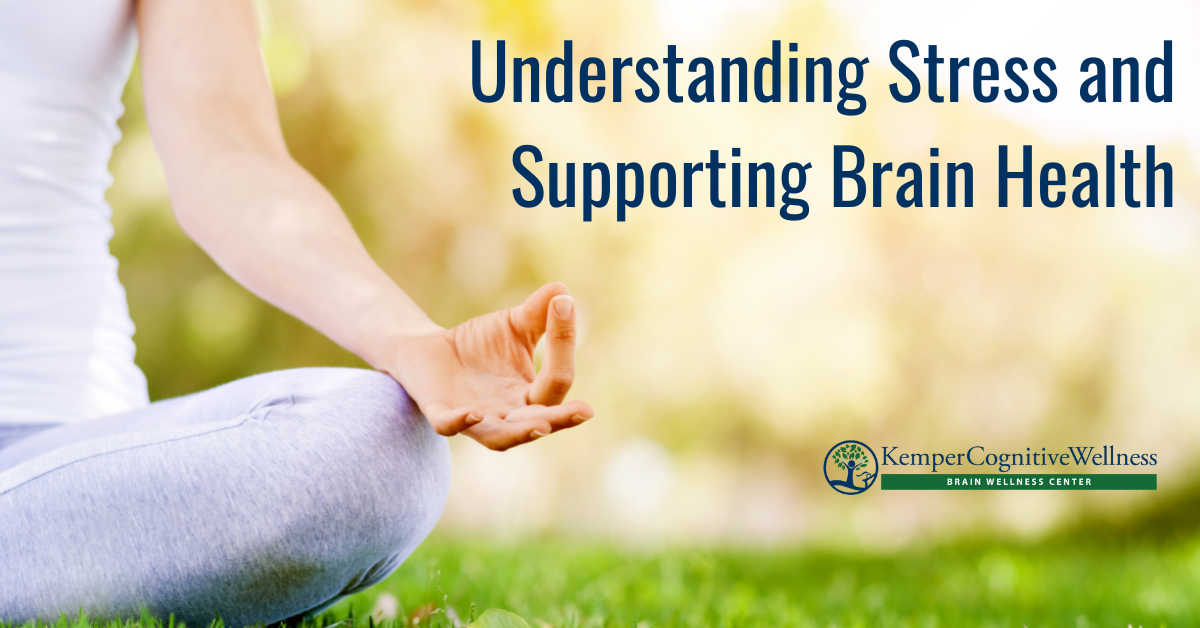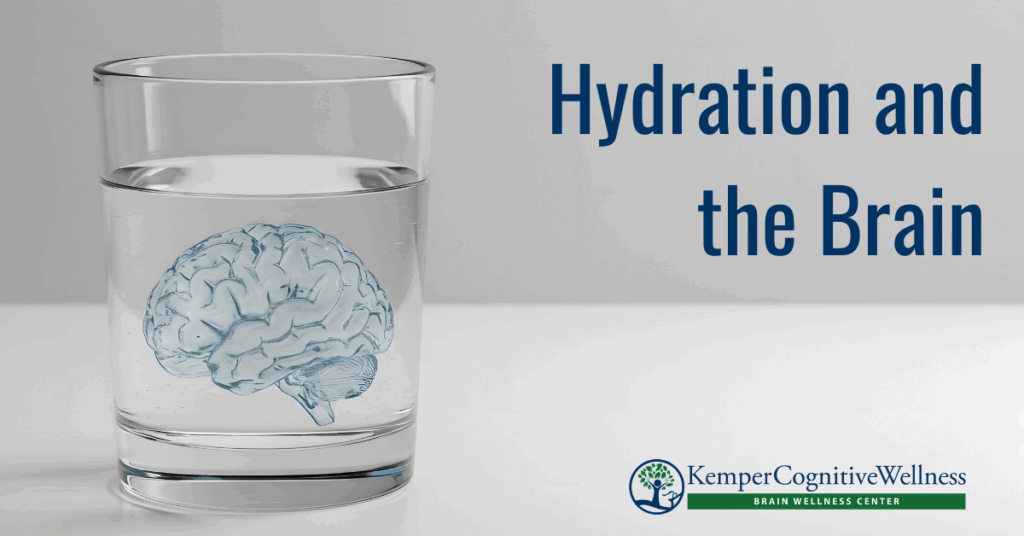Each April, Stress Awareness Month reminds us of the impact stress can have on our physical and mental health and the importance of learning how to manage it effectively. At Kemper Cognitive Wellness, we believe that understanding how stress works in the body is the first step in building resilience and protecting brain health over the long term.
There is a lot of conversation around the harmful effects of stress. And while it’s true that excessive, unmanaged distress can take a toll, it’s also true that we cannot and should not try to eliminate stress completely. So what gives?
Let’s start with a definition: stress is the body’s physical and emotional response to circumstances or events that frighten, irritate, confuse, endanger, or excite us. Stress is not inherently negative. In fact, certain positive experiences can trigger a form of stress known as eustress, a beneficial type of stress that can motivate and energize us.
Examples of eustress include vigorous exercise, working toward or achieving a meaningful goal, or riding a roller coaster. On the other hand, stressors such as living through a crisis, experiencing a major failure, or dealing with conflict are typically categorized as distress, the form of stress that may feel overwhelming or damaging if left unchecked.
No matter the cause, stress activates a well-coordinated response in the body. When the brain perceives a threat, it releases stress hormones such as cortisol, adrenaline, and noradrenaline. These chemicals trigger a cascade of reactions affecting the brain, heart, lungs, eyes, and digestive system. You might notice symptoms such as dry mouth, fatigue, restlessness, or digestive discomfort. These physical signs are simply the body’s way of preparing to respond.
In essence, stress arises when something we care about feels at risk. It is not just about the event itself, but also about how we perceive and respond to it. Our mindset, emotional resilience, and support systems all play a role in how stress impacts us.
You may already know that chronic or unresolved stress can harm the brain, immune system, heart, and other organs. Over time, persistent distress has even been linked to structural changes in the brain. But the good news is that we can build resilience and support cognitive health with simple, intentional strategies.
So what can we do, especially during Stress Awareness Month, to manage stress and protect brain health? When we view stress as a physiological response rather than something we are powerless against, several key ideas emerge:
- Protect yourself from excessive stress by setting boundaries. This might include limiting exposure to distressing media or carving out quiet time to recharge. Avoiding all stress is unrealistic, but being mindful of how much we take on can help us stay grounded.
- Increase your capacity to handle stress by assigning meaning to difficult experiences. This could involve personal reflection, connecting with supportive friends or family, or working with a counselor. Reframing challenges can be empowering and even transformative.
- Incorporate Neuronic Light Therapy into your monthly routine. This non-invasive therapy uses red and near-infrared light to stimulate brain cells, support nervous system regulation, and promote relaxation. Regular sessions may help reduce the physiological impact of stress, improve mood, enhance mental clarity, and support restorative sleep. (You can read more about Neuronic Light Therapy below.)
Here are two practical, evidence-informed strategies to try:
- Epsom salt baths (magnesium sulfate): A warm bath a few times per week is a simple and enjoyable way to relax. Magnesium supports the nervous system and helps regulate the body’s stress response. Over time, this can lead to greater emotional balance and stress tolerance.
- Coherence breathing: This technique involves slowing your breathing to about five or six breaths per minute using methods such as box breathing. Practicing regularly, even for just a few minutes a day, has been shown to improve stress resilience and heart rate variability, a key marker of nervous system health.
As we recognize Stress Awareness Month this April, take the opportunity to reflect on how stress shows up in your life and what small steps you can take to build resilience. Supporting your stress response is not only vital for overall health, but especially for preserving brain function, memory, and long-term cognitive clarity.
– Dr. Nate Bergman, DO, MBA





